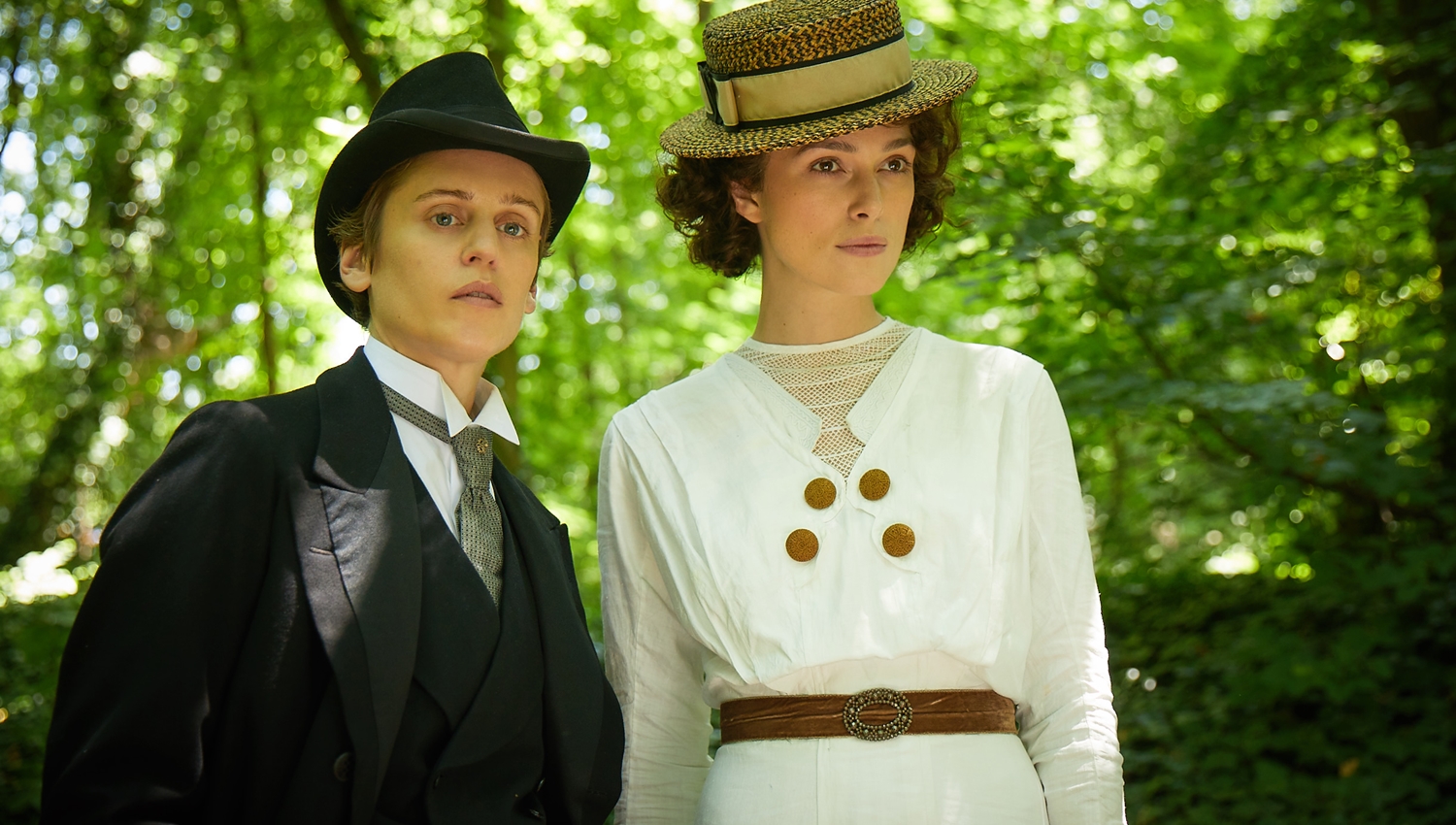
Colette
Dustin Chase
Wash Westmoreland, the director of Oscar-winning “Still Alice,” originally wrote the script for “Colette” back in 2001. As the climate in Hollywood has shifted, there has been more demand for female-centered films. What better than one of France’s most celebrated feminists Sidonie-Gabrielle Colette. The film opens with Oscar nominee Keira Knightley (“Pride and Prejudice”) running through a green open field, a cliché of many period pieces. Yet this inviting story ends up in a very different place. It’s a beautifully shot film that tackles changing behaviors and attitudes of French society during La Belle Époque. “Colette” also addresses male dominance in the business and the arts, and the need for more groundbreaking people like Colette.
Gabrielle(Knightley) is a simple farm girl who falls in love with an older man, the first man who comes along. Gabrielle weds author Henry Gauthier-Villars (Dominic West) at 20, and by 21 was ghost-writing for him. Her “Claudine” stories based on a character mirroring her own experiences and published under Henry’s pseudonym become the talk of Paris. His expensive lifestyle leads him to put more pressure on her to turn out the next sensation, which he would take credit for. Henry even resorts to locking her in the study for hours, demanding more pages. Their sexual curiosities outside marriage became a game for both. He enjoyed the company of younger women he could control, while she enjoyed other women. Colette as she became known quickly outgrew her overbearing husband, venturing beyond writing into performance art, ultimately becoming an icon for the new era.
The dual performances from West and Knightley are the soul of the film that spans a large portion of their lives. Every time a new date is splashed on screen the characters have evolved into something more eccentric than the man and girl making love in a stable when the film began. By 1904 Colette is wearing pants alongside her lover Missy (Denise Gough), another one of the film’s highlights. Despite all the cross-dressing, unconventional sex, and spotlighting a historical figure who will be new to most mainstream viewers; Westmoreland’s script writes itself into a corner it can’t escape. The performances always save the film from repetition as Knightley embodies a character we come to care about, and equally West’s character becomes even more detestable.
“I’ve paid you back a thousand times,” Colette screams at Henry when he betrays their partnership. This film has many creative moments, but it’s the celebration of the real Collette that makes it important. It’s a trailblazing portrait of one of history’s most important women. Yet, similar to other remarkable and courageous films about historical female figures (“Woman Walks Ahead,” “The Zookeepers Wife”), “Colette” is missing something both cinematically and thematically which prohibits its greatness.
Final Thought
Knightley and West’s performances plus the best of intentions from filmmakers are not enough to make this costume drama a “must see.”
